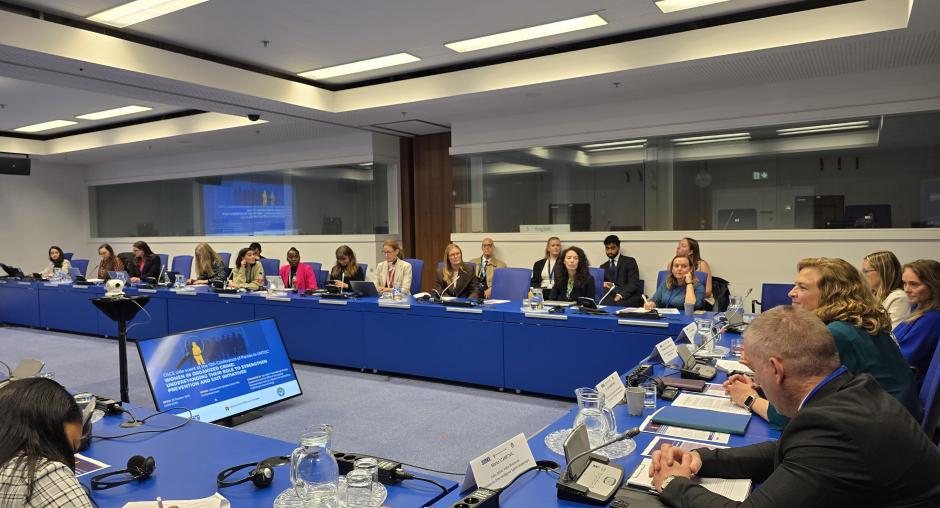How to strengthen women’s participation in organized crime prevention and exit initiatives focus of OSCE side event

On 15 October, the OSCE Transnational Threats Department and the Office of the Special Representative and Co-ordinator for Combating Trafficking in Human Beings held a side event on the margins of Twelfth Session of the Conference of Parties to the United Nations Convention against Transnational Organized Crime.
Drawing on the findings and recommendations of the OSCE report on “Understanding the role of women in organized crime”, the side event unpacked how women can better be identified, included and supported in prevention and exit initiatives. Discussions focused on examining risk factors and vulnerabilities that drive women’s recruitment into organized crime, including victimization and sexual exploitation in the context of human trafficking. Reflecting the whole-of-society approach that underpins gender-inclusive approaches to organized crime, the side event brought together over 40 participants including policymakers, criminal justice practitioners, academia and civil society.
“OSCE data is crucial to better understanding the role of women in organized crime,” said Ambassador Alena Kupchyna, Co-ordinator of OSCE Activities to Address Transnational Threats, in her opening remarks.“ This evidence can support participating States to better identify, include and support women in organized crime prevention and exit initiatives.”
Dr Kari Johnstone, OSCE Special Representative and Co-ordinator for Combating Trafficking in Human Beings, underscored that “for victims of human trafficking who have committed criminal acts related to being trafficked as a means to escape their own exploitation, it is essential to adopt a human-rights-based approach and to apply the non-punishment principle to strengthen protection for survivors, as well as improve the investigation and prosecution of these cases.”
This side event emphasized the importance of taking a comprehensive approach to women’s agency in organized crime groups, covering recruitment, sexual exploitation, gender stereotypes, and exit pathways. This marks a significant step towards improving the recognition of women’s role in organized crime and the subsequent need to implement a human-rights centered approach in prevention and exit initiatives.
The side event was co-sponsored by the Permanent Missions of the Kyrgyz Republic and Sweden to the United Nations in Vienna.
